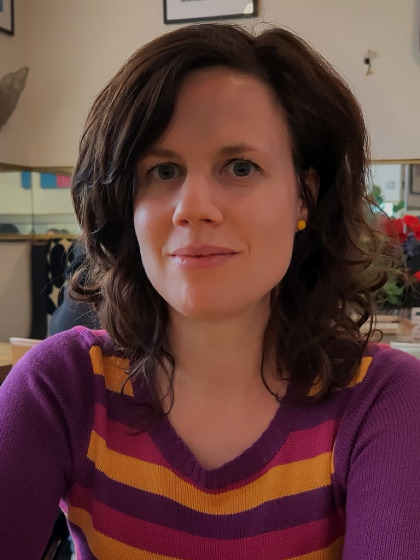dr. D. (Daniella) Vos

I developed an interest in the interaction between humans and their environments in my previous academic life, when I was a Near East prehistorian. During my studies at Leiden University and PhD at Bournemouth University, I specialised in palaeoecology, geoarchaeology, ethnography and spatial analysis. I applied different approaches within these fields to study the complex transitions in human subsistence and mobility patterns during the Neolithic, and became fascinated with the interplay between cultures and environments.
For my PhD research I was tasked with developing a new methodology for maximizing the information that can be gained from ephemeral sites, which are underrepresented archaeological contexts that are vital for our understanding of early processes of transformation in human history. This was done by reconstructing activity areas in Neolithic sites in Jordan through soil analysis, after testing the approach in Bedouin campsites. As I got to the final stages of my PhD, it became evident that a crucial part of this was finding a creative way to interpret my laboratory findings through statistical analysis. I also realised that I enjoy playing with data more than producing them in the lab.
After obtaining my PhD in 2017 I became lead scientist at the Geodienst, the spatial expertise center of the University of Groningen, and GIS lecturer at the Faculty of Spatial Sciences, before transferring to my current role at the department of Cultural Geography in 2019. As part of my work at the Geodienst I led various Geo-ICT projects in collaboration with researchers and local governments. The most enjoyable of these was the technical realisation of PAN (Portable Antiquities of the Netherlands), an open science project involving the creation of an online platform for metal detection finds in the Netherlands catering both a general and research public, which received De Nederlandse Dataprijs in 2018.
My current research focus can be summarised as the development and application of spatial analysis approaches with the aim of integrating human and natural domains. I am still interested in the interaction between humans and their environments, but now believe that such topics need to be addressed in an interdisciplinary manner. I work together with experts in other disciplines to study both the impact of human activities on ecosystems and other species, and how our environments impact human perceptions and behaviour. I find myself shifting away from underrepresented ephemeral sites to well studied urban environments, albeit still mainly interested in the underrepresented aspects of those - including walking as an undeveloped urban mode of transportation, or plant adaptation to urban environments.
I strongly believe that our research ambitions should not be purely focused on academic output, and that high quality, cutting edge education should be open to all. With this in mind, I set up an interdisciplinary summer school about the Anthropocene, which previously hosted renowned experts in geology, earth systems science, palaeoecology, archaeology, biology, ecology, communication studies, political ecology, landscape studies and philosophy.
